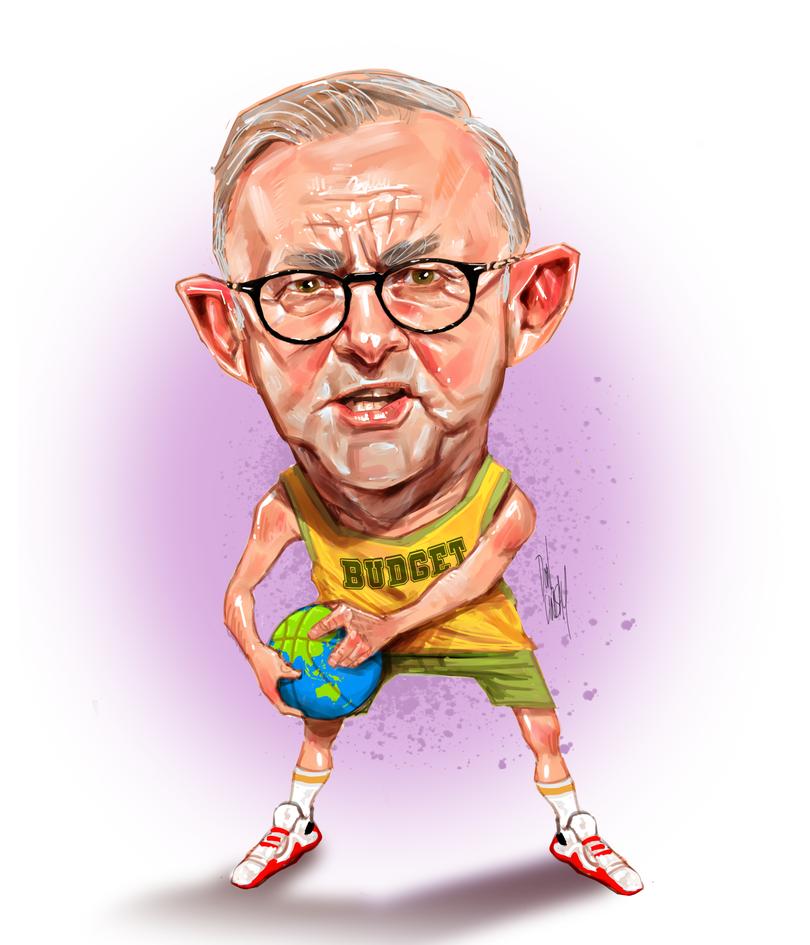KATINA CURTIS: Anthony Albanese’s crossroads gives the nation a shot at a big future
KATINA CURTIS: Anthony Albanese believes Australia is at a crossroads and he is out to convince people his budget will show the right way.

Anthony Albanese believes Australia is at a crossroads.
Take one path, and the country will be set up for continued economic growth and better lifestyles, funded by making things in Australia that people overseas need.
Take the other — or be forced onto it through political dawdling — and standards of living will fall behind and economic resilience could be put at risk through an over-reliance on buying the things we need from overseas.
Sign up to The Nightly's newsletters.
Get the first look at the digital newspaper, curated daily stories and breaking headlines delivered to your inbox.
By continuing you agree to our Terms and Privacy Policy.It’s a pretty stark picture.
The Prime Minister is out to convince people ahead of the Budget and, not coincidentally, next year’s election, that the global economy is going through a fundamental shift and Australia needs to get on board or be left behind.
With a “scene setter” speech on Thursday, Albanese will spell out more explicitly how he wants Australia to shape this future.
Last week, this column laid out how manufacturing is, at best, plateauing after four decades of slow decline.
Opposition Leader Peter Dutton has since noted that while some advanced manufacturing is returning, it is “largely where there’s a reliance on robotics and a reduced reliance on labour costs” because Australia still has high workforce costs compared with China.
Albanese believes that’s not a bug; it’s a feature.
The growing cost of labour here and the increasing ability of other countries to make things cheaper meant much of Australia’s manufacturing in the 1970s and 80s shifted offshore.
But now labour is a smaller proportion of costs and other things such as transport and proximity to resources are much more important.

And access to resources — both mineral and sheer landmass needed for vast renewable energy generation — is one of Australia’s comparative advantages.
We’ve been really good for a very long time at growing things and digging things up and putting them on ships and planes. WA knows this better than most.
We’ve been significantly less good at taking Australian innovations and turning them into lucrative industries here.
Mostly this didn’t matter because we could always buy the things we needed under relatively civil free trade arrangements.
The pandemic, with its border closures and curbs on global transportation, combined with the willingness of China to wield its economic power to get political outcomes, ended this happy situation.
Suddenly, countries have realised that over more than a decade, China has worked under the radar to become the dominant supplier of things everyone needs to decarbonise.
Just ask nickel producers or solar panel manufacturers.
If you’re reliant on a single supplier, you put yourself at risk of them turning off the tap.
US Commerce Secretary Gina Raimondo spelled this out more explicitly than most Australia politicians are willing to do when she met Albanese, Madeleine King and critical minerals companies in Washington last year.
Albanese does not mention China once in his speech.
But he does point out that plenty of other jurisdictions — such as the US, Canada, Japan, Korea and the European Union — are backing their domestic industries with money and legislation.
“Critically, none of this is merely being left to market forces or trusted to the invisible hand,” he says.
It’s not protectionism but the stark reality of the new global competition.
This is not necessarily about pouring taxpayer money into select projects but de-risking new industries to attract private capital.
It’s also a reality that Australia’s economy is becoming more services-oriented.
The largest job growth in the decades to come will be in the care sector, driven by an ageing population.
But Albanese warns that if we remain over-reliant on buying goods from overseas and continue the generations-long failure to capitalise on our excellent innovation, the standards of living for those millions of service sector workers will fall.
“Australia can’t afford to sit on the sidelines. Being in the race does not guarantee our success — but sitting it out guarantees failure,” he says.
His challenge is to get voters to latch on to the same sense of urgency that he has about the scale of the looming change and the new role of government in the face of likely ideological nay-saying.
Dutton and his Opposition are already casting doubts on whether boosting manufacturing is a realistic or worthy goal.
He links it to the easily understandable issue of high energy prices — which risks the whole debate getting side tracked into renewables bashing or the Coalition’s still-nebulous plan to pursue nuclear power.
If the nation is at the crossroads the Prime Minister sees ahead of him, it can’t afford to get sidetracked or bogged.

